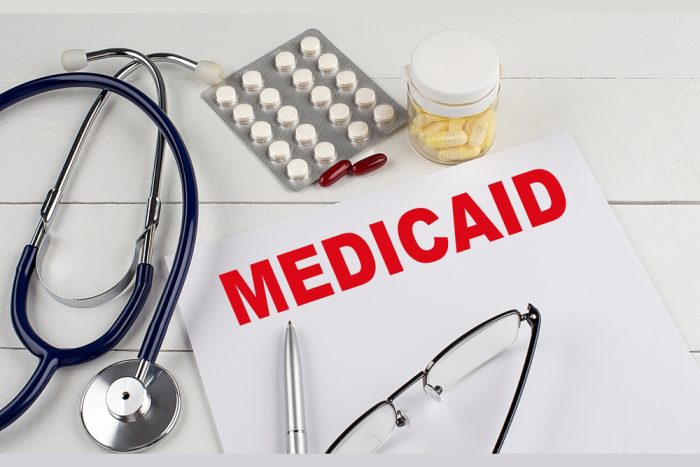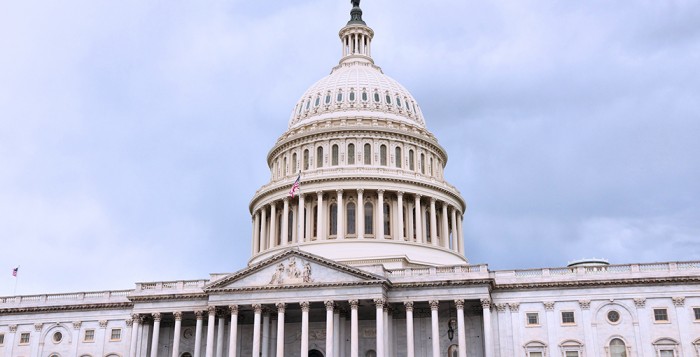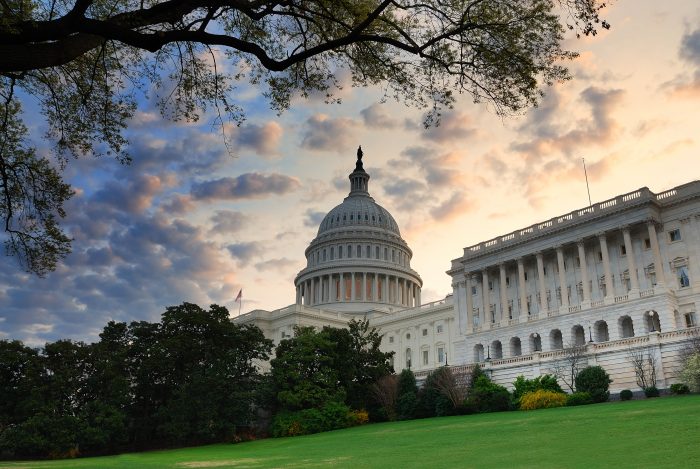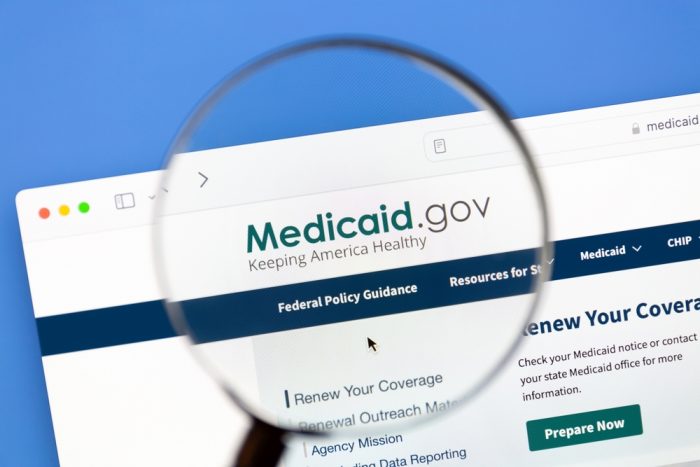Medicaid
Senate Votes to Pass “Big Beautiful Bill” — Potential Healthcare Cuts for Millions of Americans
The Senate today approved the “Big Beautiful Bill” with the collateral impact of taking away health care from hundreds of thousands of Pennsylvanians. The bill will now return to the House for a final vote before it goes to the President’s desk for signature and approval. The House is expected to act quickly.
The Senate bill makes even more drastic cuts to health coverage than the House version, totaling over $1 trillion, including Medicaid. Millions of Americans will lose access to health care; specifically, these cuts will take away health care from more than 600,000 Pennsylvanians and could double health insurance premiums for many more. In addition, the bill adds trillions to the growing Federal deficit by way of sizable tax cuts.
This will deeply impact our most vulnerable individuals and families that our members serve in the Commonwealth. We must act now to save access to health care. Find your legislator and their contact information here to let them know that you do not support the passage of the “Big Beautiful Bill.”
Medicaid & Advocacy Update: Contact Your Legislators Today!
Earlier this week, the Senate Parliamentarian advised lawmakers that several provisions in the budget reconciliation bill will not be able to pass with a simple majority vote. This includes the Senate’s proposed reductions to state provider taxes that were expected to result in billions of cost savings to the federal government. Senate Republicans now have several options to consider before moving forward, including removing key Medicaid provisions in the bill or re-drafting and re-submitting them to try to earn Parliamentarian approval. Other policies that were ruled unallowable under the Byrd Rule included the exclusion of specific groups of immigrants from Medicaid and withholding federal funds from states that use their own funds to provide coverage.
Senators are expected to vote in the coming days. While Pennsylvania Federal legislators are hearing the message from RCPA and other state associations, they are hearing very little from the constituencies in their home districts.
To assist with outreach and to help tailor the letter provided above, National Council and RCPA have provided additional resources below:
Your outreach TODAY is critical. If hundreds of billions of dollars are cut:
- Millions of people are expected to lose access to lifesaving care and services;
- Community behavioral health providers, operating on the thinnest of margins already, will face additional financial hardship; and
- The cuts are unlikely to save any money overall because costs will simply shift to states, who will be forced to try and make up the funding difference.
Specific proposals under consideration, like mandatory work requirements and provider tax policy changes, are expected to create huge administrative burdens that are likely to result in eligible people losing their coverage, plus massive funding losses for states that could result in reduced availability of mental health and SUD services.
Advocacy Opportunity: Leverage the Anniversary of Olmstead to Call Attention to the Value of Medicaid
HB 1590 “4 Walls” Telehealth Legislation Passes House
Message from Rep. Dan Williams’s Office:
HARRISBURG, June 24 – Bipartisan legislation introduced by state Rep. Dan Williams, D-Chester, that would help Pennsylvanians take advantage of new federal Medicaid rules that give patients and clinicians more telehealth options for behavioral health services passed the PA House today with overwhelming support.
“The longstanding and outdated ‘four walls’ requirement has limited Medicaid reimbursement to services within the physical walls of a clinic,” said Williams. “This only creates barriers to care, particularly in rural areas and regions experiencing mental health workforce shortages.”
The Centers for Medicare and Medicaid Services gave states the option to waive the requirement on Jan. 1. In response, the Pennsylvania Department of Human Services has submitted a State Plan Amendment to adopt this flexibility, which is currently awaiting federal approval.
House Bill 1590 would repeal state regulations that conflict with the new federal flexibility. Importantly, the bill would not change existing rules requiring in-person treatment hours for outpatient behavioral health clinics.
“Under this bill, Pennsylvania can fully implement the change, expanding access to behavioral health services and reducing care gaps for our vulnerable populations across the Commonwealth,” Williams said.
The bill now moves to the state Senate for consideration.
It is important to note that, at this time, OMHSAS is awaiting approval from CMS. To address the Federal Medicaid payment conditions in the Pennsylvania statute, there was a need for this legislation to permit services be covered under Medicaid, and HB 1590 would achieve this. It is also important to reiterate that this bill will not change outpatient behavioral health clinic rules requiring in-person treatment hours. The passage of this bill will address these conditions for outpatient clinics as well as the delivery of SUD services.
Both the CMS SPA approval and the legislation would be retroactive to January 1, 2025.
Until then, the completion of both the SPA and the legislation on 4 walls flexibilities will remain in place. RCPA is grateful to have partnered with OMHSAS, House legislators, and other stakeholder associations on the development of this bill. We will continue our efforts in getting the legislation to the Governor’s desk.
If you have any questions, please contact RCPA COO and Director of Mental Health Services Jim Sharp.
Key GOP Senator Warns Medicaid Cuts Could Spell Political Disaster for Republicans
E-Book: What Medicaid-Funded Providers Need to Know Right Now, from Foothold Technology
There’s been a lot of talk — and a lot of concern — about the federal budget and what it could mean for Medicaid. We’re all hearing it from you, too: “What’s actually happening?” “What does this mean for our funding?” “Are these changes final?”
This guide will help answer those questions. It lays out what’s in the current House bill, what’s at stake for providers, and what we’re watching next as the Senate and CMS weigh in.
Inside, you’ll find:
- What changes are being proposed, like new work requirements and copays
- What it could mean for your clients and funding
- What we know, what we don’t, and what comes next
These updates aren’t always easy to follow, so we’re breaking them down in plain language, and we’ll keep doing so as things evolve. Stay up to date with our Medicaid Intel here.
New Analysis Estimates 1.6M Medicaid-Expansion Enrollees Receiving SUD Treatment Will Lose Insurance Under H.R. 1
A new Center for American Progress (CAP) analysis estimates that if H.R. 1 were to become law, more than 1.6 million Medicaid-expansion enrollees receiving SUD treatment would become uninsured. Although these estimates reflect the House-passed bill, the Senate’s more extreme Medicaid cuts could cause even greater coverage losses and disruptions to care.
KFF developed a table that provides a summary comparison of Medicaid provisions, including details on work requirements, in the House and Senate budget reconciliation bills.
The reconciliation legislation still needs to pass the Senate, and the House and Senate will need to reconcile any outstanding differences. President Trump expects to have the reconciliation bill on his desk for signing by July 4.
The bulk of those coverage losses would come from the bill’s proposed burdensome work-reporting requirements on adults enrolled in Medicaid through the Affordable Care Act’s expansion option. Specifically, the bill would require nonpregnant, nondisabled, non-caregiver adults ages 19 to 64 to document at least 80 hours of work per month or other qualifying activities (such as job training or volunteering) in order to maintain their Medicaid coverage. Individuals unable to meet the requirement would risk losing coverage. The Senate Finance Committee text goes even further, eliminating the exemption and requiring compliance from parents with children older than age 14.
Though the bill includes an exemption for individuals with SUD from work-reporting requirements, it remains unclear how states would implement or enforce that exemption.
CAP estimates that the states with the largest coverage losses among Medicaid enrollees being treated for SUD include California (nearly 170,000), New York (nearly 166,500), Ohio (134,500), and Pennsylvania (nearly 118,000). These coverage losses reflect the size of each state’s Medicaid expansion population as well as each state’s rate of SUD treatment take-up among people with Medicaid.
Medicaid is the largest payer of behavioral health services in the United States, including for SUD treatment. According to the latest available data, Medicaid covered nearly 60 percent of all national spending on SUD treatment in 2019 — accounting for $17 billion out of the $30 billion spent across all payers.
ACA improved SUD treatment access by making SUD services one of ten essential health benefits that nearly all insurers are required to cover. The ACA also allowed states to expand Medicaid eligibility to adults with incomes up to 138 percent of the federal-poverty level, providing millions of previously uninsured low-income adults with access to life-saving SUD treatment.
New Phone Application Option for LTC and HCBS Participants Announced
Effective Monday, June 16, 2025, the PA Consumer Service Center (Inspiritec) began accepting Long-Term Care (LTC) and Home and Community-Based Services (HCBS) applications over the phone. Individuals can call 1-866-550-4355 to apply for Medicaid, including LTC and HCBS. This information can be found on the DHS website, as well.
To communicate this change, the Department of Human Services (DHS) publicized this info with external stakeholders, posted banner messaging to multiple DHS web pages, added messaging to the Statewide Customer Service Center (CSC) wait time menu, and shared this information internally. DHS also provided Consumer Service Center staff with additional information needed to accurately capture information specific to LTC and HCBS applications.
Questions regarding this initiative can be directed to the DHS helpline at 800-692-7462.

















